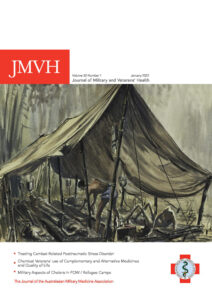Editorial – The Four Horsemen
The Four Horsemen In the Editorial that I wrote in January 2021, I was speculating what the imminent roll-out of the COVID vaccines would mean for Australia and the world. Over the last 12 months, we have seen the successful roll-out of 4 vaccines and vaccination rates reaching unprecedented levels, with rates of over 95%… Read more »




 Download the whole edition here.
Download the whole edition here.


